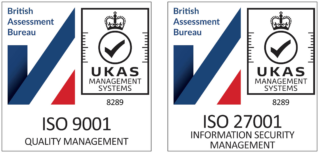Using a certified IDSP for identity verification and DBS checks on employees

If your hiring process requires you to complete criminal record checks through the Disclosure and Barring Service (DBS), could digital identity validation help you and your applicants? As you may be aware, DBS have introduced digital standards to support the process of validating identity as part of a Basic, Standard or Enhanced check.
Today, the DBS code of practice and Basic check processing standards support the use of an Identity Service Provider (IDSP) certified to the UK digital identity and attributes Trust Framework (such as TrustID) and enables Registered Bodies (RBs) and Responsible Organisations (ROs) to delegate the activity of identity validation to third parties or customers.
That means that employers can work with a certified IDSP and, as a first step in the DBS check process, ask applicants to capture and upload their identity documents remotely and assess their authenticity through the IDSP service. The employer can then share the IDSP’s digital validation report with their chosen Registered or Umbrella Body.
What is a digital identity check?
The first step in a Basic, Standard or Enhanced DBS check remains an identity check. However, the option for a digital identity check means that an employer is no longer required to see identity documents to confirm an applicant’s identity. Instead, the applicant can be invited to remotely upload images of permissible documents to a secure online validation service along with a selfie image. A certified IDSP can then use facial recognition and fraud detection technology to assess the authenticity of the identity documents and confirm that documents are being presented by the holder using live face-match technology.
How can digital ID checks help?
- Reduce administration
A digital identity validation eliminates the need for manual checking, photocopying and storing of identity documents. What’s more, a certified IDSP can provide all the key information for the DBS application form, including name, date of birth and passport details.
- Save time
Your applicant can pull the relevant documents together and complete their digital identity validation quickly, easily and securely through an internet connection at a time that suits them. Digital identity check results are also returned quickly to the employer and the report contains key information which can then be used in the DBS application.
- Improve consistency and reduce fraud risk
A certified IDSP carries out consistent security checks, removing the risk of human error and ensuring that GPG45 check standards are met – Medium Level of Confidence for Basic DBS checks and High Level of Confidence for Standard and Enhanced DBS checks.
- Combine Right to Work and DBS identity checks
Whilst a DBS check does not provide evidence of a person’s Right to Work in the UK, some IDSPs, including TrustID, are certified to undertake both checks. This means a single check process can be used to confirm a person’s Right to Work eligibility and identity for a DBS check. The latest Government DBS guidance gives the example of hospital recruiting a new member of staff and working with a certified Identity Service Provider (IDSP). The employer asks the applicant to prove her identity and Right to Work by uploading her in-date British passport to an online service, provided by a certified IDSP and at the same time, establish their identity for a DBS Check to a high level of confidence. The hospital then sends the digital identity check report from the IDSP to their Umbrella body who accepts it, once they’re satisfied that the chosen IDSP meets the necessary requirements.
Who can help with digital checks?
To enable digital identity checks, you need to choose a certified IDSP. There is a full list of certified IDSPs on the Government website. For Basic DBS checks, your chosen IDSP must be certified to Medium Level of Confidence and for Standard and Enhanced DBS checks, they must be certified for High Level of Confidence digital identity checks.
You should also check whether the IDSP:
- Produces a report which confirms the identity check meets DBS requirements and that the report will be accepted by your Umbrella Body.
- Ensures that the output report provides all of the information specified in section 4.5 of the DBS digital identity guidelines
- Is able to verify an applicant’s current address
Your Umbrella Body may already be working with an IDSP. At TrustID, we have partnered with various Registered Bodies, including Security Watchdog, Mayflower Disclosure Services, Trac and more…
If you’re considering digital checks to help streamline your DBS process, you can find out more information here or please get in touch!
Sign up to receive updates
Receive notifications from TrustID direct to your inbox. Simply fill out your email address in the form below.
Want to find out more?
We’d be really happy to chat through your requirements and offer advice on the best service for your business.
Tel: 0118 466 0822 or email us.
Request a callback


